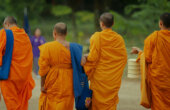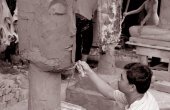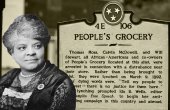Hunger Isn’t About Food; It’s About Power
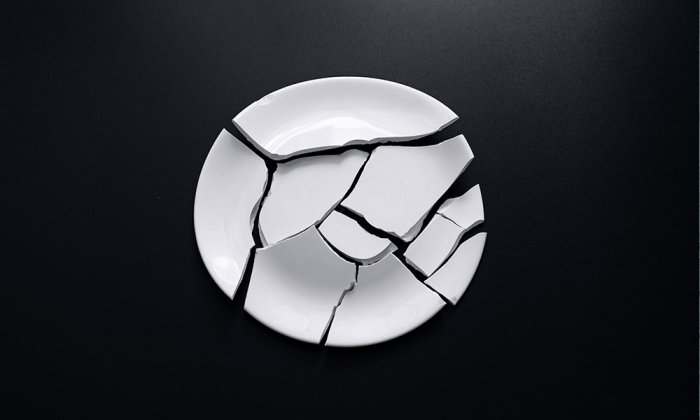
Building on over 25 years of research and advocacy, Mariana Chilton’s incendiary new book, “The Painful Truth about Hunger in America,” offers a deep, structural analysis of the many harms of hunger. This study is relentless in its examination of state violence and intergenerational trauma and how both are directly related to marginalized folks’ experience of food insecurity.
But, as always, when there is suffering, there is the opportunity for solidarity. In Chilton’s simple but profound thesis, there lies a reckoning and a visionary politics: Hunger is not about food; hunger is about power. “The Painful Truth about Hunger in America” is a radical invitation to unlearn and to create the conditions for our bodies, minds, and spirits to heal through deep practices of community care and reparative justice.
Faron Levesque: Let’s talk origin stories. You are a renowned scholar of public health and a seasoned food justice activist in your own right. You’ve testified before Congress and the Senate; you’ve amassed almost three decades of research on food insecurity; you’ve launched several community programs. And yet, almost immediately, you tell your readers that you are not the expert here but “a beginner.” Can you tell us why you self-identify like this early on?
Mariana Chilton: When I started working on hunger, I had to unlearn a lot of things I thought I knew. That’s why I built “unlearning and starting again” into the title. A good mantra I live by is something I also learned from Zen Master Thich Nhat Hanh — and that is: “are you sure”? A beginner’s mind keeps us open to new ideas and new questions. We really need this stance for today’s times.
Here are three more reasons for that beginner’s stance:
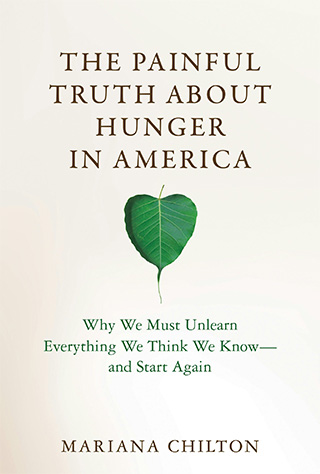
First, I didn’t grow up poor and I didn’t struggle for my daily food. So, taking a beginner’s stance is a form of deep reverence for the people who have experienced such hardship. They always know better than I. It is their wisdom, not mine, that fueled me on the road to speak to Congress, and I did my best to ensure that the people who taught me could also speak directly to the press, the public, and members of Congress.
Second, many of us are conditioned to believe that if we do well in school — if we read books and do well on tests without really trying things out in the real world — that we have some sort of expertise. I was arrogant like that, coming out of Harvard and the University of Pennsylvania. When I wanted to do public health work with the Southern Cheyenne and Arapaho people in Oklahoma, I thought I had something to offer. The Cheyenne and Arapaho Tribal Health Board laughed me out of the room when I approached them with the original topic for my dissertation. It was something useless like training in cross-cultural communication (as if that was going to help) when their greatest needs were a new hospital, a dialysis unit, and free crutches. They knocked some sense into me right away. They demanded I approach working with them out of love for their people and not to try to get anything (like a PhD) out of it.
“It took me years to understand that at the root of hunger was being disrespected, feeling unloved.”
That original ethos of love and solidarity is a central theme running throughout my book. It took me years to understand that at the root of hunger was being disrespected, feeling unloved — unloved by parents, by one’s community, by policymakers. I think if I hadn’t learned to be a beginner, to listen deeply and learn alongside people that I love, I would not have paused long enough to learn about the depths of suffering underneath hunger, nor the heights of the solutions for which we need to reach.
Because of those original lessons, all author proceeds of the book go to the language and culture program of the Cheyenne and Arapaho Nations in Oklahoma in honor of the spiritual leaders and friends who showed me some love despite my whiteness and foolishness.
Finally, to be a beginner is a way to bring in readers who might be new to these topics — I want people to learn along with me. And they can’t do that unless there is a sense of camaraderie that comes along with learning together. I hope when people read this book, that they learn beyond what I learned, see beyond what I was able to see.
FL: Your book is a radical invitation to unlearn, and to create the conditions for our bodies, minds, and spirits to heal through deep practices of community care, something that you’ve been actively implementing at the organizations you’ve started — Center for Hunger-Free Communities, Witnesses to Hunger, and the Building Wealth and Health Network, for example. What have you learned about the everyday work of solidarity in these community spaces?
MC: Central to our work is love and solidarity. When they are done well the whole endeavor is joyous. But it is also messy. We learned we must always honor how experiences of violence — physical, emotional, spiritual, or policy-related violence — cause trauma. That trauma lodges in the body and shapes how people think, feel, and act. Such trauma can make people feel scattered, depressed, anxious, angry, unpredictable. So, to maintain our resilience, we all needed a lot of patience and understanding. We practiced radical acceptance and built this into our everyday work practices. It demanded a lot of maturity and willingness to be schooled by each other. This approach kept the Center for Hunger-Free Communities vibrant for 20 years.
The messiness, however, is not necessarily welcome in a university environment. For instance, we worked with a lot of women and children. Having a lot of women show up with their toddlers with diapers and balloons can disrupt the otherwise quiet, studious atmosphere of my colleagues. Once a toddler went scampering behind the Chair of our department and followed him onto the elevator. Not cool. Not safe, either!
From all this struggle to keep our spaces healing-oriented we’ve learned to keep our sense of humor and to insist on creating a culture of collective care that is nonhierarchical. I think the team running the Center now is trying to formalize a solidarity-oriented type of leadership. Whether this can survive in higher education at a neoliberal university struggling to stay financially afloat is an open question.
FL: “Hunger is by design. It is as American as apple pie.” You argue that for generations, people have been so misguided in thinking that hunger has anything to do with food. In fact, hunger is a history of power, violence, and intergenerational trauma. Will you tell us more about what you call the “wounds of domination” that directly cause hunger?
MC: The earth generates enough food and enough resources for everyone. But the powerful and the wealthy want to profit off this abundance, so they make food scarce for most people around the globe so they can charge money for it. It’s important to remember that hunger is “man-made.” Hunger is caused by inequality, discrimination, greed, and hoarding. I’m not the first to say this — scholars have been making this claim for over 100 years. They explain that the wealthy want to pay low wages to keep their profits high. So, they pay people just enough to keep people desperate where they will take the minimum amount of salary just so they can buy bread and feed their kids. This dynamic keeps people poor and hungry and fattens the pockets of the wealthy.
Hunger happens on a continuum of domination and abuse. As an example, on one end of the spectrum, the wealthy keep wages low to keep people in a precarious vulnerable position, which generates profit. On the other end of the spectrum, we see mass famines. Two of the biggest famines in modern history — the Bengal famine in India and the “potato famine” in Ireland — were caused by the British hoarding food and money and not allowing food aid to get to the people who needed it. Today we’re witnessing mass starvation in Gaza. This is not natural — it’s central to Israel’s incessant greed for land — and while they are actively bombing people in Gaza, they are also not allowing food aid in, so 96 percent of the people of Gaza are severely food insecure.
These war crimes are the same dynamic we saw in the U.S. when the U.S. military stole Indigenous people’s lands by starving them into submission. So, yes, hunger is a weapon that the wealthy and powerful use to plunder people and lands. The same goes for the enslavement and subjugation of African people and their descendants over the last 400 years. Today’s public assistance systems are built on top of those original crimes for which the U.S. government has never been held to account.
“Hunger is as American as apple pie” because the domination that generates hunger is baked into our systems. Here are a few examples: The segregated health care system for Indigenous people is subpar, making Indigenous people more susceptible to early death and untreated illness. Black people are often barred from securing mortgages in major cities like Philadelphia which keeps them locked into neighborhoods with negligible city resources and underfunded schools. These government-supported dynamics make it hard for people to stay healthy and to have enough resources to buy food. Indigenous people have rates of hunger that can be over five times greater than the national average; Black people in the U.S. have rates of hunger that are three times higher than that of whites.
“Hunger happens on a continuum of domination and abuse.”
This violence is not just in the big U.S. systems, but also, fractals of this violence play out in families. The women I interviewed explained they couldn’t make enough money for food because they were depressed and stressed. When I asked about why they were so stressed and depressed, they brought me back to how they were sexually abused as a child or caught in a violent relationship. They were often dominated or literally held down.
Warning: It gets deep.
In one of my first interviews, a mom of a toddler and kindergartener explained she was raped by several men when they tricked her into supposedly receiving a ride home with her groceries after she went to the supermarket to shop for food. Because of that rape, she couldn’t eat food and lost a lot of weight. She started a problematic drinking habit just so she could tolerate putting food in her mouth (which reminded her of being raped). This is an outrageous example, but I’m sad to report that it’s part of an indelible pattern in U.S. society. Women-headed households have extremely high rates of hunger when they are compared to the national rates. This has to do with their unfair low wages (Black and brown women have the lowest wages compared to all other groups) and it has to do with how women and children are treated by men and by our society.
Their insistence on discussing trauma threw me for a loop. Here I was thinking I was going to talk about food, but the women talked about rape or the threat of rape. So, I had to really listen in and try to understand from their perspective what was truly happening. I was forced to turn my gaze onto our society and how we let this happen. So, the book talks about women in Philadelphia in the 2000s, and brings the reader back to 15th century Europe to consider how the Pope was glorifying domination and disrespect in order to plunder Africa and the Americas. Our society is still caught in this sinister momentum. I try to get readers to see this so that we can transform our culture from a culture of domination to a culture based on compassion and collective care.
FL: You offer shared grief as a collective grounding between you and your community of readers. You write that feeling grief opens up many other emotions and understandings of the past, present, and future. Will you tell us a little bit more about mobilizing the collective grief of hunger toward reparative justice?
MC: Thank you for such a beautiful question.
When we asked about thousands of people’s childhood experiences of feeling loved and related those experiences to their reports of food insecurity during adulthood, the results were shocking. More than exposure to violence, more than having lost a parent, it was the experience of not feeling loved that was most associated with food insecurity. So, I had to learn about the grief of not having known love. Then, I had to ask, what can we do to generate more love, more belonging, more inclusion? That strengthened my commitment to help other people realize that that terrible crime of disrespect must be healed — that people need opportunities to find joy and feel a sense of belonging. But you cannot get there unless you share a sense of grief for what could have been and should have been, and what should be.
Grounding the book in grief was important because it’s a way of acknowledging and accompanying people in regard to their pain. In the U.S., we are conditioned to think we must be happy all the time and that America is the greatest nation on earth, that nothing is wrong here. This worldview makes us unwilling or incapable of hearing about people’s suffering, and incapable of understanding the wounds of the past that still need healing. If we ignore people’s pain, it means we are more likely to steamroll the people who have suffered the most in this country. And it is they who have most of the creative ideas for how to get ourselves out of this mess. I think there are millions of us who are really grieving, but many of us have no opportunity to express it and to share it with each other.
So, on this front, I’m still a beginner. The book just opens the door to grief and suggests that what we really need to do is acknowledge and work with the pain of hunger and stop pretending we can simply fix it with food without changing our society and ourselves. This is why I focus on reparations for descendants of slavery, returning stolen lands to Indigenous nations, and leaning into universal basic income and universal health care that help break down the walls that separate us. I think people will be open to this if we can simply acknowledge our shared grief and moral injury. Doing so can help us open to expressing kindness for each other.
FL: Whether you’re talking about a very ill-timed toilet explosion at your community cafe or you’re inviting readers to go deep and “see what’s there in your own soil,” I felt a kind of no mud, no lotus mantra really come through your approach to the work. As a scholar and researcher, what brought you to the practice of Zen Buddhism and how do you integrate that lens of suffering into your methodologies?
MC: Ah, you noticed. It seemed so strange to me why I would personally feel so affected by people’s stories of hunger. I had a sheltered childhood; I was protected and cherished and my family was never poor. I was wondering, why am I so upset? What right do I have to feel so upset? Some people say that’s secondary trauma. For instance, this kind of thing can happen with social workers who become traumatized by working with people who’ve been through some harrowing experiences. But I learned that it goes deeper than that. I learned that their pain is not separate from my own pain.
Thich Nhat Hanh is often credited with making that profound little mantra “no mud, no lotus” that packs in one of Buddhism’s deepest teachings: Working with suffering can generate space for joy. I was at a low point in 2010. From the outside, it looked like my work was really taking off, and people were getting to know the women of Witnesses to Hunger. But inside, I was a mess. I was traumatized by what I was hearing and learning. That’s when I found the teachings of Zen Master Thich Nhat Hanh. He made it very plain that one’s own pain is interconnected with everyone else’s pain. This helped me relax a little, because I didn’t have to focus on what separated me from the people I interviewed. Through his teachings and that of the monastics, I started to learn that, rather than pretend that the pain I feel is not there, or that the pain is someone else’s and not mine, I should befriend the pain, look into it, and learn from it. If I can do that, then the suffering becomes less, and it opens more space to experience joy.
“Like it or not, we share in the same unavoidable shit — we all share the history of genocide, enslavement, and colonization.”
The third part of the book focuses on three domains of action: the personal, the political, and the spiritual. Where I was going with “your own soil” was to invite readers to look into themselves — to be unafraid of the mud they may find there. What that personal work is about is undoing white supremacy, racism, and rape culture (all those components of domination) that lie deep within each of us. If we can learn to have compassion for ourselves, then we can build our compassion for others; we can be of service and accompany others in solidarity. Like it or not, we share in the same unavoidable shit — we all share the history of genocide, enslavement, and colonization. And we cannot work through it alone. We need each other to help each other evolve into a kinder species that keeps each other flourishing.
FL: I’d love to end this interview where you in fact begin your own daily practice, so: How are you feeling today?
MC: Despite my ongoing brokenheartedness, I feel happy to know that many people who participated in our programs gained a sense of community, connection, and more financial power for themselves.
I’m a little anxious that my book might upset some of my friends who are really attached to their way of doing things. But I’m also excited to make some new friends who are readers. I’m hoping this book touches people’s hearts in ways that open them up to being seen and heard; to feel accompanied. It’s an expression of solidarity with people who have been marginalized and exploited, as well as with people who are trying to bring more love into the world.
Faron Levesque is a public historian, writer, and editor, currently based in New York, born and raised in Memphis. Faron is working on a book about memory, movement, and liberation in the Queer South. Their newsletter, The Bottomfeeders Banquet, explores hungry history, ecology, and power.
Mariana Chilton is Professor of Health Management and Policy at Dornsife School of Public Health at Drexel University. She founded the Center for Hunger-Free Communities, where she launched Witnesses to Hunger, a movement to increase women’s participation in the national dialogue on hunger and poverty, and the Building Wealth and Health Network to promote healing and economic security. She has testified on solutions to hunger before the U.S. Senate and U.S. House of Representatives. Chilton is the author of “The Painful Truth about Hunger in America.”

